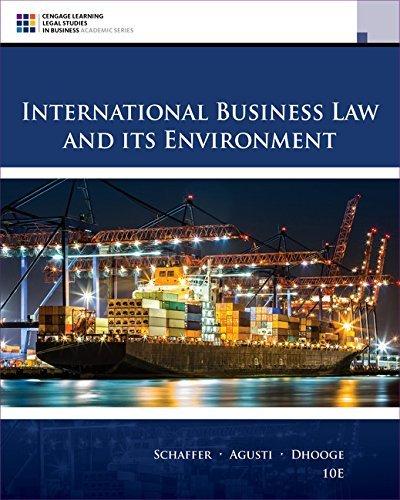Article 2(1) of Portuguese Law No. 40/2003 provided that the affixing of tinted film to the windows
Question:
Portugal acknowledged that its law constituted a restriction on the free movement of goods but contended that it was justified by the objectives of road safety and public safety. Portugal argued that the ban was intended to enable law enforcement authorities to make a rapid external inspection of the interior of motor vehicles in order to ensure that the vehicle's occupants were wearing seat belts and to identify potential criminals for the purpose of combating crime.
There was no Community legislation on tinted film designed to be affixed to the windows of motor vehicles at the time Portugal adopted its legislation. However, Community legislation existed in relation to safety glazing which was fitted from the outset to motor vehicles. This legislation included Council Directive 92/22/ EEC of March 31, 1992 on safety glazing and glazing materials on motor vehicles and their trailers. This legislation provided that with respect to windshields, light transmittance could not be less than 75%. The light transmittance was required to be at least 70% in other areas within the driver's forward line of sight. Light transmittance could be less than 70% with respect to safety glazing located within the driver's rearward field of view if the vehicle was fitted with two exterior rearview mirrors.
1. What was the ECJ's holding with respect to Portugal's claims that the prohibition upon window tinting was in the interest of public safety and eradication of crime?
2. What was the basis for the ECJ's decision that Portugal's law constituted an obstacle to the free movement of goods?
3. How did the ECJ conclude that the prohibition on window tinting was an obstacle to the free movement of goods when the Portuguese law did not contravene a directly applicable EU law?
Fantastic news! We've Found the answer you've been seeking!
Step by Step Answer:
Related Book For 

International Business Law And Its Environment
ISBN: 9781305972599
10th Edition
Authors: Richard Schaffer, Filiberto Agusti, Lucien J. Dhooge
Question Posted:





